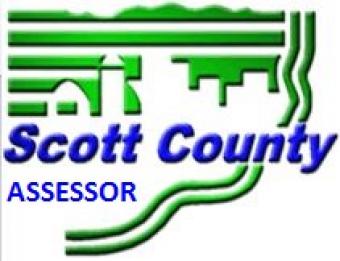County Property Assessments 2021
Scott County property assessments increase despite COVID-19 pandemic
In early to mid-2020, it was believed that COVID-19 may have a negative effect on the value of real estate. It turns out it was the opposite. Due to the combination of all-time low interest rates, reduced local inventory, and increased local demand, 2020 real estate sale prices were higher than ever. And, that trend seems to be continuing into 2021. It is the same trend seen in almost all 99 counties in the state.
Due to the increase in real estate sales prices, the majority of Scott County property owners will see an increase in their property assessments this year despite the COVID-19 pandemic. By law, the County Assessor is mandated to adjust assessed values to follow local real estate market trends every two years, in the odd years. When the market is trending upward, assessments are adjusted accordingly.
What property owners can expect
Individual property assessment changes will vary based on location, condition, quality, size, amenities, and other factors, but overall, 2020 sale prices were well-above 2020 assessed values for most classes of property, resulting in increases in January 1, 2021 assessed values.
The average residential property increase is about 8.5% county-wide. The average multi-residential property increase county-wide is about 13%. The average county-wide commercial and industrial property increase is about 6.5%. Ag land is not valued at market value but valued on a five-year average of productivity and net earning capacity per Iowa law. Due to the average remaining steady, ag assessments will remain steady this year compared to last year.
The Scott County Assessor’s Office will be sending out assessment notices to all property owners in late March informing them of their new January 1, 2021 assessment. New assessments will also be available online at that time.
The 2021 assessment will be the basis for property taxes payable fall of 2022 and spring of 2023.
Why assessments change
The law requires Iowa assessors to maintain a 5% margin from the median sale ratio (sale price to assessed value) in each class of real estate of all sales occurring in the prior year (95% - 105%).
Using local market sales data, the assessor has the ability to adjust individual properties and even entire neighborhoods. If the assessor doesn’t make these necessary adjustments to properties to reflect local real estate market trends, the Iowa Department of Revenue will order the County Auditor to adjust and equalize assessed values of all properties within a certain classification by a certain percentage to attain the mandated median ratio, whether individual properties need the full adjustment or not. This is known as a state equalization order.
How the assessor determines assessments
Per Iowa law, assessed values are to represent the actual fair market value of property, or what it would sell for on the open market, as of January 1st the assessment year.
To help determine fair market value, the assessor uses appraisal methods that include; sales comparison approach and the cost approach. The income approach may also be used on income-producing property.
The sales approach identifies similar properties in the area that recently have sold and compares them to the subject. The cost approach estimates the cost of replacing all the improvements on the property and accounts for depreciation. The income approach uses the estimated earning capacity of the property (ie: potential income the property should be able to produce – gross income), adjusts for vacancy and property expenses to determine the property’s estimated net income earning ability, and then applies a capitalization rate to determine value.
What if I think the assessment is wrong
Property owners that feel the new assessment is unwarranted should ask themselves one question. “If I were to walk outside and put a for sale sign in the front yard, what would I expect to get?” If a property owner truly believes the assessment is still too high, they should contact the assessor’s office immediately or explore their appeal options.
If property owners have questions or concerns about their assessment, they’re encouraged to contact the assessor’s office by phone or email. It is recommend to contact the County Assessor’s Office as soon as possible to ensure timely processing.
Informally, property owners can request an assessment review to discuss their assessment and request adjustment with County Assessor’s appraisal staff from April 2nd through the 25th, 2021. Property owners can ask questions and get answers about their individual property assessment and the assessment process as a whole.
Formally, property owners can protest to the local Board of Review to discuss their assessment and request adjustment with a panel of board members from April 2nd through the 30th, 2021. Property owners are strongly encouraged to start with the informal process above by contacting the Assessor’s Office first between April 2 and April 25, but property owners are not required to do so.
Petitions to the Board of Review can be filed online. Here’s how:
- Find your property on the Scott County Parcel Query.
- Scroll down to the header "Scott County Assessment Appeals Process".
- (only available online April 2 thru 30 annually).
- Follow the instructions from there.
Alternatively, petition forms can be found online at the Iowa Department of Revenue website at https://tax.iowa.gov/iowa-property-tax-board-review.


